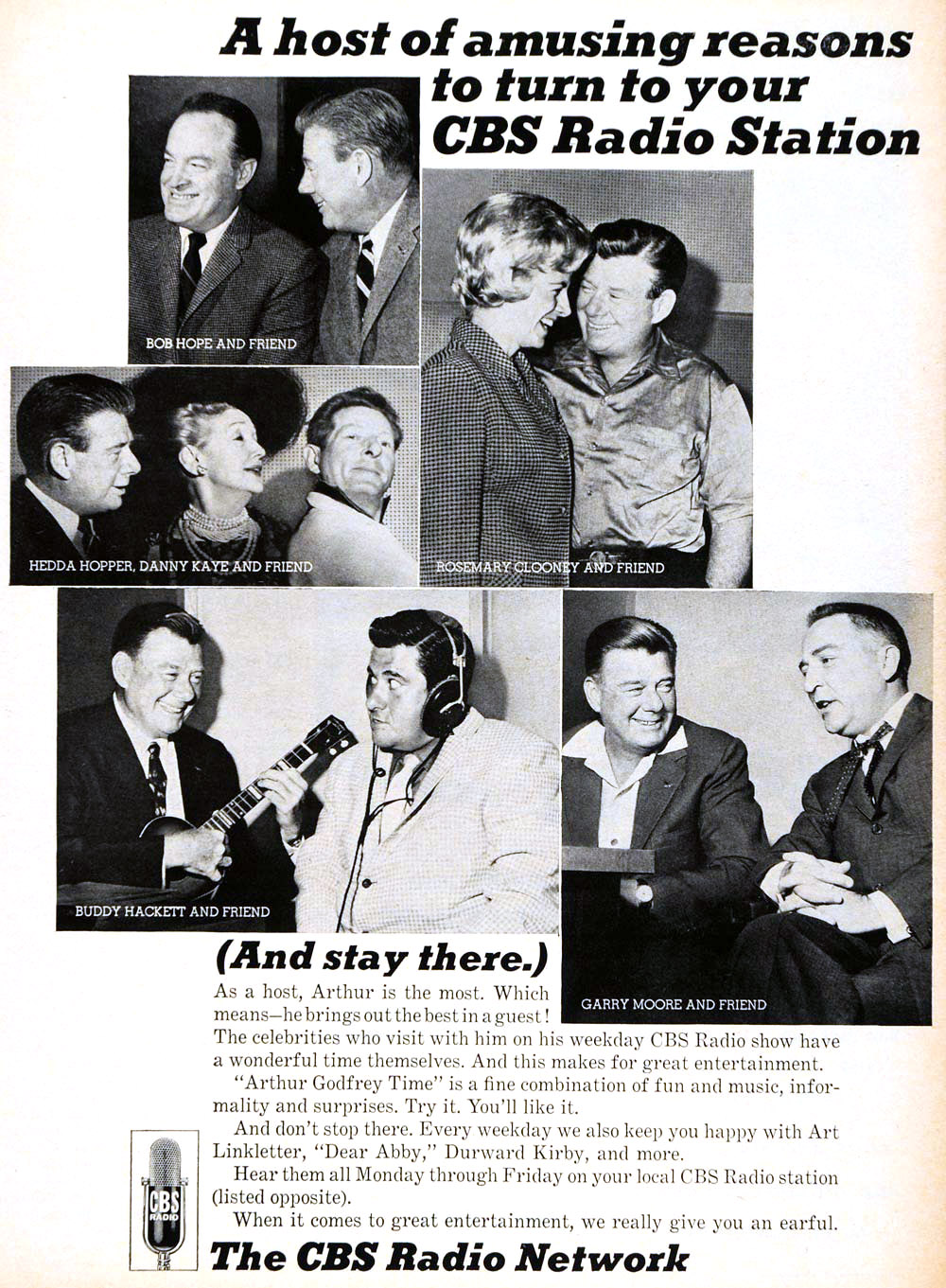 WJR-AM 760 was formerly a CBS Radio Network affiliate in Detroit, 1965. (To fully appreciate this TIME 1965 feature, click on image 2x for largest PC view). — MCRFB.COM
WJR-AM 760 was formerly a CBS Radio Network affiliate in Detroit, 1965. (To fully appreciate this TIME 1965 feature, click on image 2x for largest PC view). — MCRFB.COM
![]()
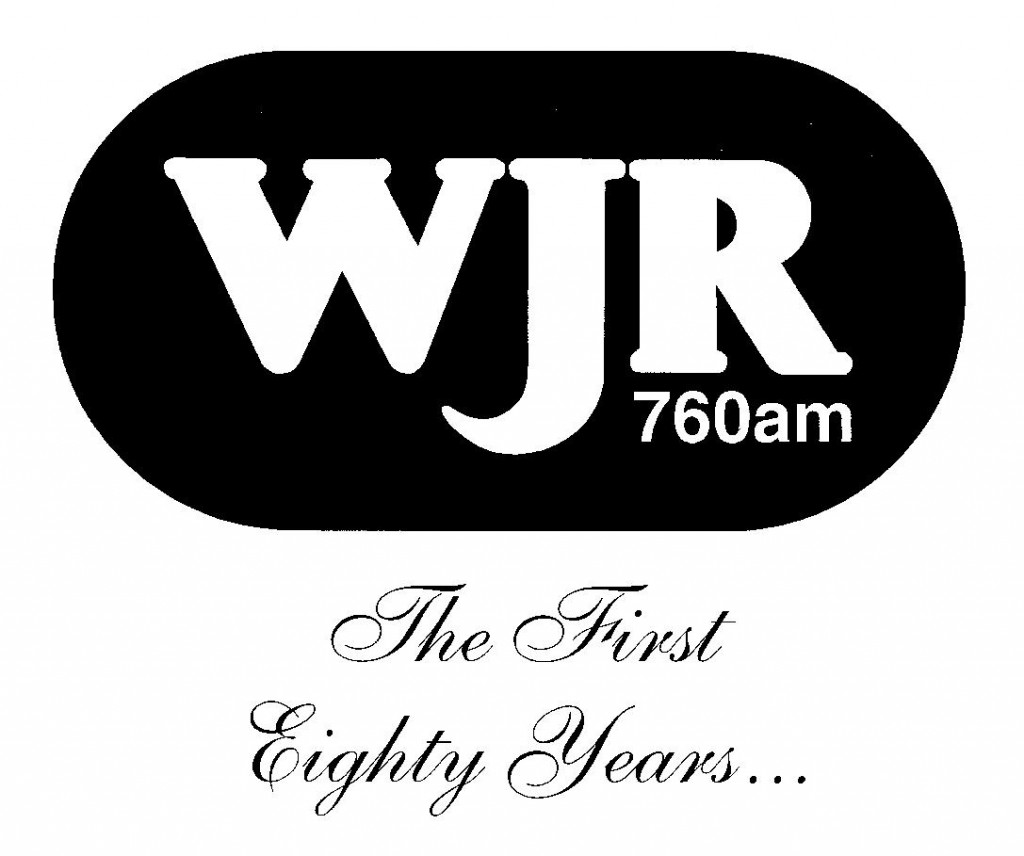
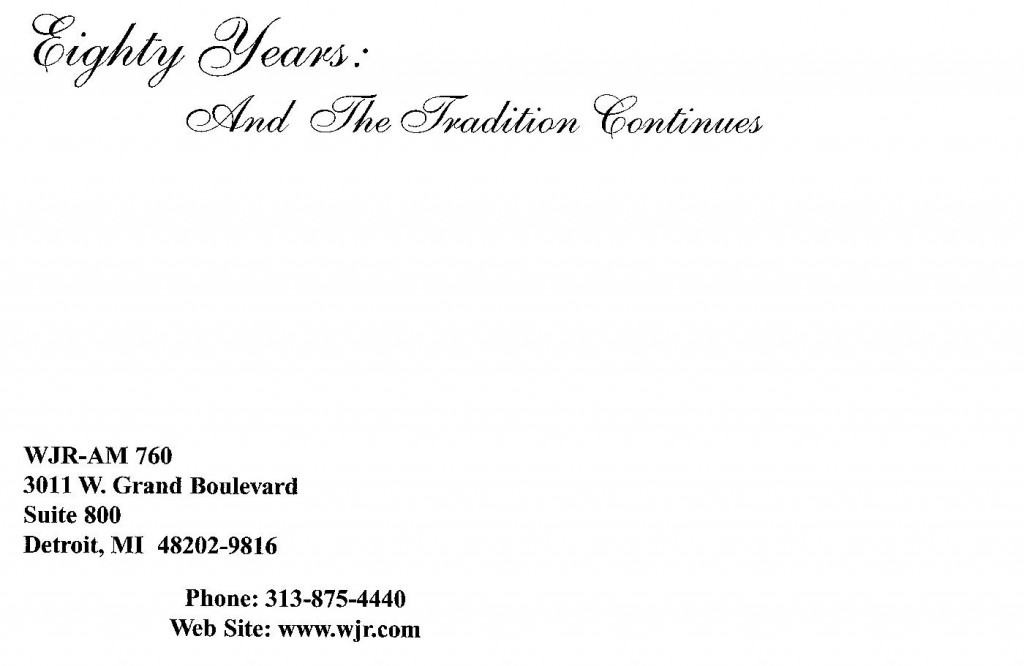
A SPECIAL THANK YOU!
___
Motor City Radio Flashbacks would like to thank WJR’s Don Schuster for sharing with us this WJR radio 2012 commemorative program, ‘WJR 760 The First Eighty Years.’ Narrated by WJR’s Mike Whorf.
![]()
Berkowitz Transits Cap Cities Sister FM Over to AM 760 WJR
DETROIT — GARY BERKOWITZ will soon be putting all of his energies into Cap Cities/ABC News/talker/WJR Detroit. He will be leaving the operation of sister hit outlet WHYT to a yet-unamed PD. “It was a difficult decision to make,” say Berkowitz. “I love WHYT and it’s format and I’m very proud that we’ve set it up so it can run all by itself.” With regard to leaving the operations manager post at WHYT to concentrate on the same responsibility for WJR, Berkowitz says, “I will be nice to have just one job, and the WJR post will put me in a better position to get closer to a GM spot.“
In the meantime, Berkowitz will be helping WHYT’s newly named GM, John Cravens (Billboard reference below), find a suitable PD for the top 40 station. END
___
(Information and news source: Billboard; October 18, 1986)
___
“John Cravens is named president/general manager of hit outlet WHYT Detroit. Craven joins the Cap Cities/ABC outlet from the VP/GM post at Malrite’s KSRR Houston.”
(Billboard; October 11, 1986)
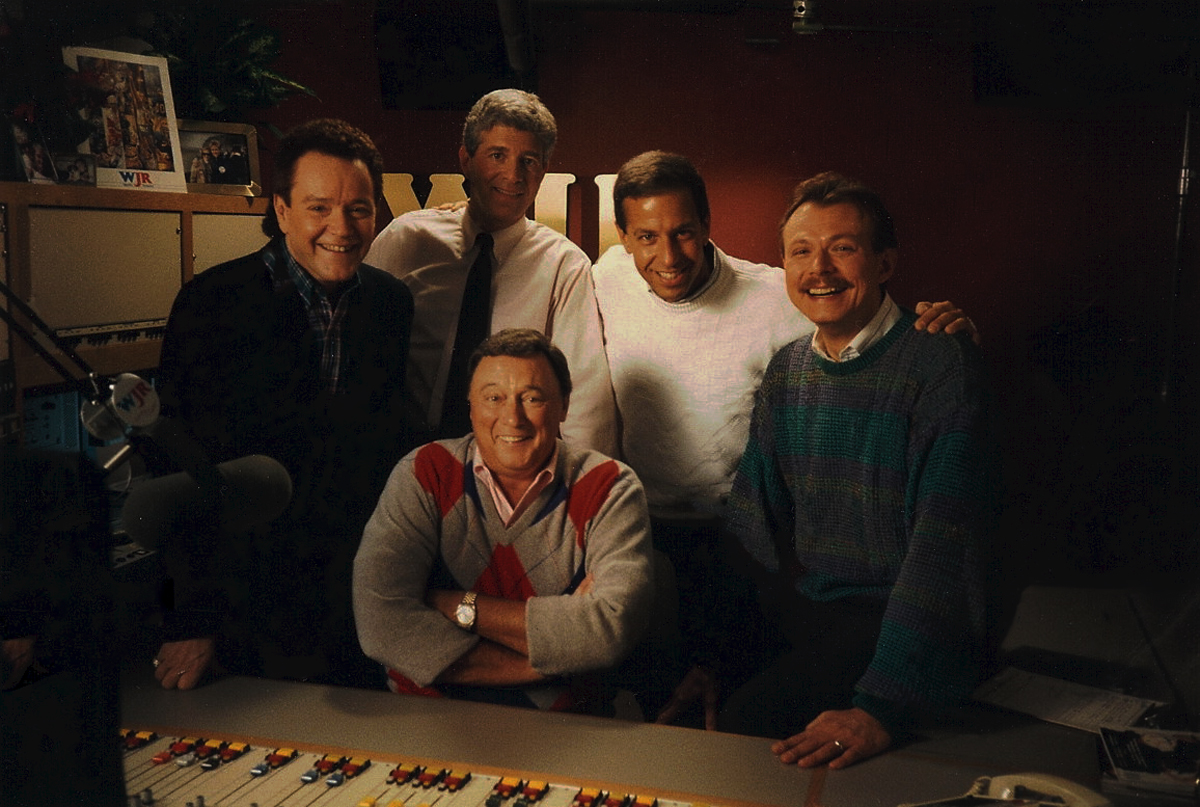

![]()
 From the MCRFB radio scrapbook: 1943
From the MCRFB radio scrapbook: 1943
WJR Wins Clear Channel Special Award Citation
WJR TALKS ABOUT RADIO
WJR Awarded Citation for Intelligent Promotion of Radio As Entertainment Medium
(Billboard 6th Annual Radio Publicity Exhibit; New York, July 3, 1943)
 NEW YORK (July 10) — In many ways the most important award in the clear channel class went to WJR, CBS-affiliated 50,000-watter in Detroit. This station’s publicity philosophy is unique: “Don’t talk about yourself. Do something that causes others to talk favorably about you.” They don’t go for stunts. they don’t rap on other stations, they don’t ignore competition. All of which is so sane, fresh and shrewd as to rate ramming down the throats of the trade.
NEW YORK (July 10) — In many ways the most important award in the clear channel class went to WJR, CBS-affiliated 50,000-watter in Detroit. This station’s publicity philosophy is unique: “Don’t talk about yourself. Do something that causes others to talk favorably about you.” They don’t go for stunts. they don’t rap on other stations, they don’t ignore competition. All of which is so sane, fresh and shrewd as to rate ramming down the throats of the trade.
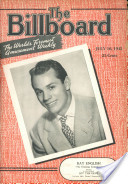
WJR operates in a community where newspaper antipathy towards radio resulted in every local daily yanking its radio column. Taking the long-range attitude, WJR built a backfire by buying space in two dailies, The Free Press and The Times, and publishing radio columns. And, as to prove that this sane approach was no accident, to column was devoted to all radio, to rival stations as well as WJR, including WWJ, a station affiliated with The Detroit News. In addition, WJR supplied about 400 rural and small town sheets with a “Radio Jake” column. Here again the space was devoted to all stations even though WJR prepared the material, supplied mats and proofs arranged for publication.
“Army Caravan” Build-Up
Another unostentatious promotion to WJR’s credit was its Army Caravan. This stemmed from the realization that Michigan farmers had planted less acreage than usual. Thru its Farm Bureau announcer, Duncan Moore, the station, in cooperation with the U. S. Army, organized and routed an army caravan that toured the hinterlands, paying tributes to farmers and urging increased bean and beet acreage. The army sent tanks, artillery, jeeps, munitions carriers, field kitchens, etc. The station bought space in The Free Press to say “The Army Salutes You” — mind you, not WJR. The Department of Agriculture assured the station this project averted a serious food shortage.
Gestures With Strings
Again, when in September of last year, WJR announced a $5,000 scholarship for the student best qualified to enter radio, the Detroit Board of Education handled all details, from selecting the co-operating committee to publicizing and promoting the competition. Again, it was no flash bally, but a sincere effort to promote radio.
And for the benefit of the cynic who is bound to comment that WJR can well afford to take this subtle publicity slant it should be noted that what this situation did was done by no other, even though any station could do as much in relation to its ability.
Thus for making publicity incidental to, not the motivating factor of, a worthy public service, the Awards Committee gave WJR a special citation for intelligent promotion of radio as an entertainment medium. END
(Information and news source: Billboard; July 10, 1943).
![]()
 From the MCRFB news archive: 1966
From the MCRFB news archive: 1966
Record Industry Crown McCarthy Detroit Top Air Personality
DETROIT — J. P. McCarthy of WJR is the king of the air personalities in Detroit, according to the record industry. McCarthy received 52 per cent of the votes of record dealers, distributors, one-stop operators, and local and national record company executives as being the major influence on album sales. They also attributed McCarthy with having vast influence in creating sales of Easy Listening singles.
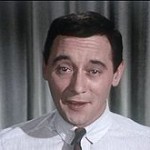
James H. Quello, program director of the Easy Listening format station, said that McCarthy “seems to be able to pick them. He practically made Herb Alpert and the Tijuana Brass in Detroit.” A lot of the credit too, should go to music director Harold Lake, Quello said.
“We try to play the bright new beats that aren’t rock,” Quello said. . . .try to be cheerful and entertain and be sensible. McCarthy practically dominates all morning ratings because of his warm personality and the fact he keeps his show interesting. For instance, he has little gimmicks called winners and losers — sort of comments about topical matters. He also plays novelty records.”
WJR also scored as the major influence on classical record sales with 55 per cent of the votes. The programming of WJR has given the station tremendous billings. “Business in sales within the last year in a half has been absolutely fantastic,” Quello said. “We’ve definitely proved that there’s room in a market for all kinds of music — country music, our music, or rock ‘n’ roll.”
(Information and news source: Billboard; July 2, 1966).
![]()
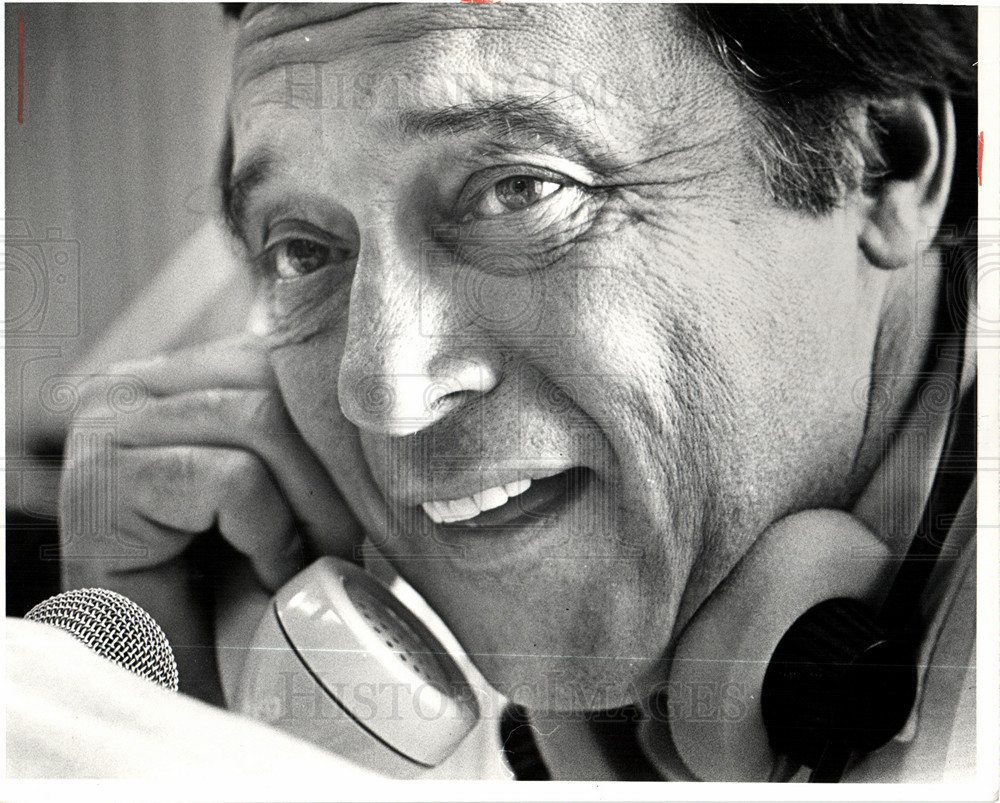
![]()
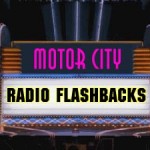 From the MCRFB radio scrapbook: 1947
From the MCRFB radio scrapbook: 1947
Detroit Stations In Publicity Shifts
 DETROIT, July 12 — Radio publicity staffs of major local radio stations were somewhat scrambled this week, with James Quello, publicity director at WXYZ, ABC-owned station, moving over to WJR, where he assumes the combined posts of advertisement and publicity July 14. Quello replaces Bob Anthony, the first man to hold down this specific assignment when the WJR staff underwent earlier organization changes. Anthony is understood to have had several other offers.
DETROIT, July 12 — Radio publicity staffs of major local radio stations were somewhat scrambled this week, with James Quello, publicity director at WXYZ, ABC-owned station, moving over to WJR, where he assumes the combined posts of advertisement and publicity July 14. Quello replaces Bob Anthony, the first man to hold down this specific assignment when the WJR staff underwent earlier organization changes. Anthony is understood to have had several other offers.
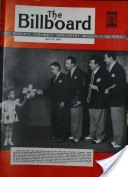
At the same time, Loren C. (Bud) Watson resigned as publicity director at WWJ, effective July 19, and will open an independent publicity office. No successor has yet been appointed.
Further major row shift rumored was that of Harry Heilmann, sportscaster at WXYZ, who is reported slated for a sports director’s post at WJR.No confirmation on this report could be obtained but it was further inferred, on the basis of the rumored report, that WJR would take over ply-by-play broadcasts of the Detroit Tigers game next season. END.
(Information and news source: Billboard; July 19, 1947).
![]()